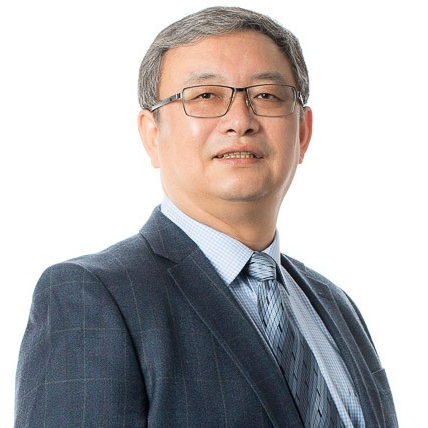Honorary Concordia University Research Chairs

Chun-Yi Su
Intelligent Control of Non-Smooth Dynamic Systems
The phenomenon of wing rock or limit-cycle oscillation that normally occurs in aircraft is mainly due to mechanical backlash, dead zone and hysteresis. This phenomenon is of great concern in the aerospace industry. Extensive research has been carried out to find means of controlling this unwanted oscillation. Mechanical backlash, dead-zone and hysteresis that generate such oscillations fall into the general category of non-smooth nonlinearities. They are common in the industrial controls systems, ranging from high-technology applications (micromanipulation in fabrication of semiconductors, ultra-precision turning of turbine shafts, micro-stabbers and micropipettes in cellular biology) to traditional applications (robot manipulators, and drive systems of large vehicles). Dr. Su’s plans are to develop control theories, engineering design methods and technology for non-smoooth dynamic systems, arising from parameter variations or from neglected dynamics.
The development of control methods have a direct impact on the products being produced, and are suitable for any motion systems with mechanical connections, hydraulic servo-valves, piezoelectric actuators, electric servomotors, and biomedical actuator systems that require fast and precision control.

Mourad Debbabi
Information Systems Security
With the striking expansion of information technology, security is emerging as the most important challenge facing computer science and engineering. Individuals, corporations and organizations are relying more and more on information systems that are connected to public networks, to transmit confidential and security-critical data. This trend has increased the risks of interception, malicious instrumentation and misuse of sensitive electronic information. Accordingly, information systems must be protected against any malicious attempt that may affect secrecy (by leaking sensitive information), integrity (by corrupting information), authentication (by impersonating authorized principals), availability (by denying service to legal users), etc. The negative impacts of this situation include: loss or endangerment of human life, financial loss, unauthorized use or misuse of information, denial of services, alteration and/or compromise of data or software. Our research aims at creating dedicated processes, methodologies, techniques and tools to prevent attacks, reduce vulnerabilities, and mitigate the underlying risks and forensically investigate cyber incidents.

Kash Khorasani
Control of Autonomous Network of Unmanned Systems
The objectives of the proposed research are to provide enhanced capabilities to the command and control operators, and ultimately for fully autonomous on-board systems in determining the most efficient allocation, configuration, strategies, and architectures for cooperative fault diagnosis and control of a network of unmanned vehicles (UVs). The fundamental challenges and issues envisaged are development of novel, formal, and rigorous distributed and semi-decentralized methodologies for management and determination of exchange of data, knowledge, and actions among the team of cooperating UVs. These goals are to be accomplished by utilizing control theories that are constrained by the communication network and computational resources for cooperative fault diagnosis and cooperative recovery and reconfiguration control objectives that are subject to real-time constraints for guaranteeing and maintaining the mission requirements. The expected outcomes of this project will provide rigorous solutions to practical problems of paramount importance that is of significant interest to the space, robotics, marine, and aerospace industries and will accumulate human capital and develop sustainable research capabilities.

